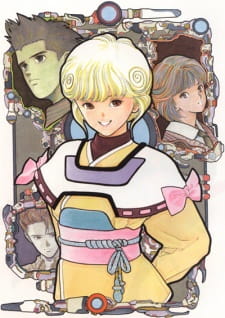Alternative Titles
Synonyms: Den'ei Shoujo Video Girl AI
Japanese: 電影少女 VIDEO・GIRL・AI
English: Video Girl Ai
French: Video Girl AI
Information
Episodes:
6
Status:
Finished Airing
Aired:
Mar 27, 1992 to Aug 28, 1992
Source:
Manga
Duration:
29 min. per ep.
Rating:
R+ - Mild Nudity
Statistics
Score:
7.241 (scored by 1336813,368 users)
Ranked:
#3179 2
2
based on the top anime page. Please note that 'Not yet aired' and 'R18+' titles are excluded.
Popularity:
#4033
Members:
30,709
Favorites:
141
Available AtResources
|
|
























